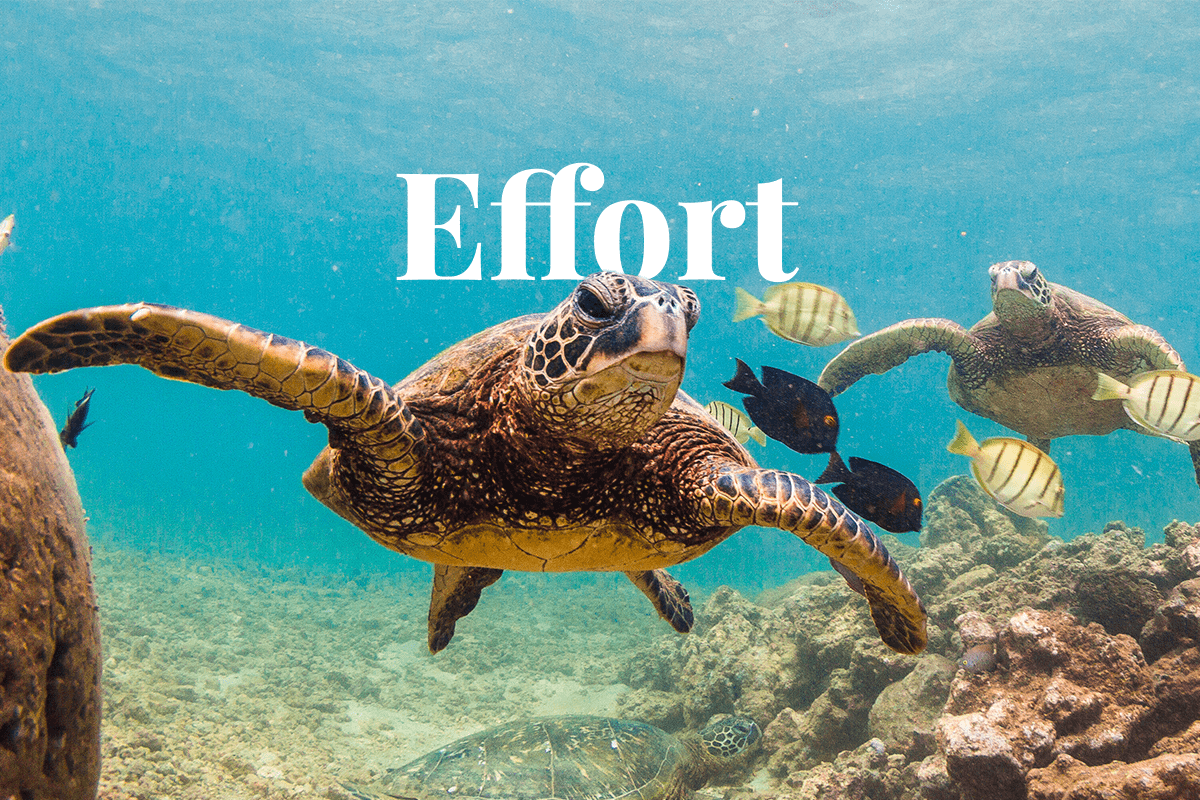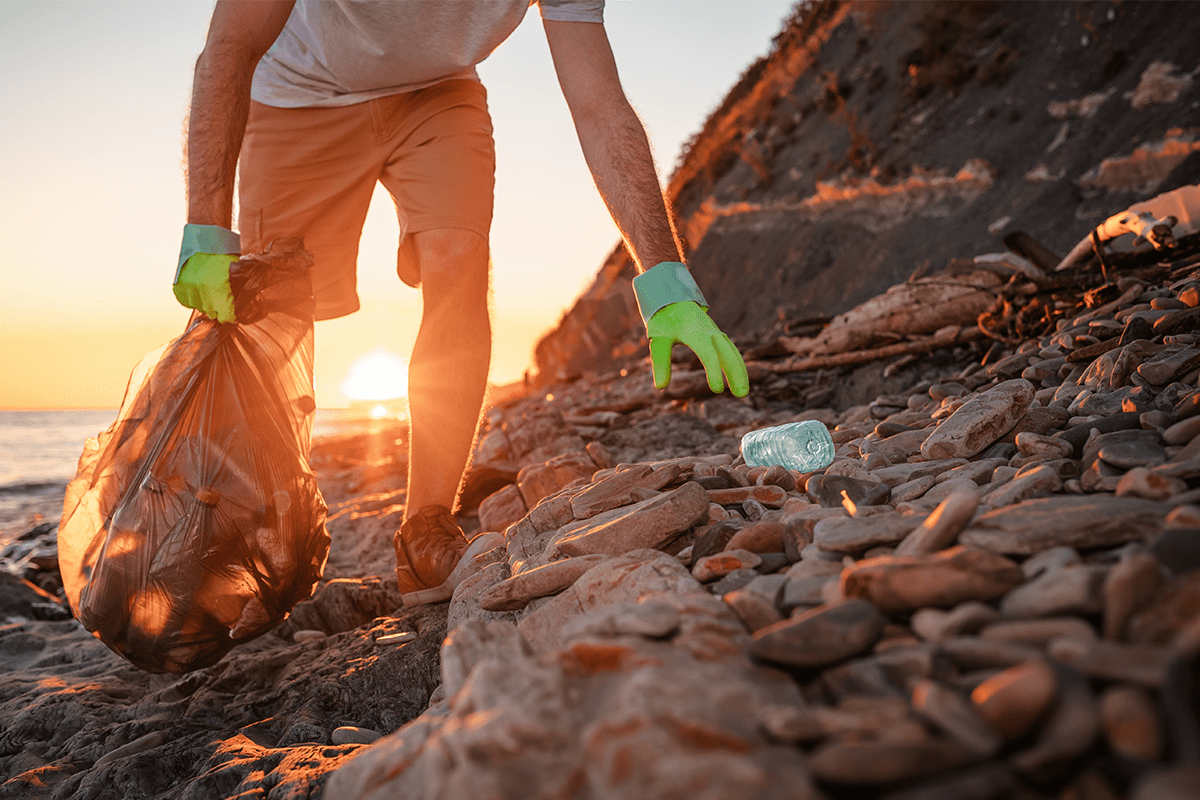Plastic waste has become a major environmental issue, and it's not just large plastic items that are causing problems. Microplastics in our food chain and plastic waste in our oceans are just some examples of plastic's negative impact on our planet. The question is therefore, how can we prevent or reduce plastic waste? While we all try to reduce our plastic use, more efficient effort is needed. Enter plastic credits—the new solution to plastic waste. Plastic credits is a new concept that could help reduce plastic waste by creating a market for it. This blog post will discuss everything you need to know about plastic credits.
 Sea Turtle cruising in the waters of the Pacific Ocean in Hawaii.
Sea Turtle cruising in the waters of the Pacific Ocean in Hawaii.
What are plastic credits?
A plastic credit is a certificate representing the collection of a specified weight of plastic waste that has been recovered and/or recycled, which would have otherwise ended up in the natural environment. These credits are measurable, traceable, and verifiable, ensuring that they represent actual reductions in plastic waste.
Plastic credits can be purchased by organisations and other end-users to take action on their plastic footprint. For example, when combined with an accurate measurement, plastic credits can enable businesses to offset their plastic usage and become plastic neutral by eliminating as much plastic waste from nature as they use. This creates a market-based solution that incentivises the reduction of plastic usage and debris while funding plastic waste recovery and recycling efforts.
The financing generated by plastic credits can finance crucial infrastructure and facilitate the recovery and recycling of plastic waste that would otherwise damage the environment. This makes plastic credits a powerful financing tool to fund solutions to the global plastic pollution problem while also promoting sustainability and responsible waste management. The amount of plastic credits needed for each specific case is based on a plastic footprint calculation.
Calculate your plastic use
What is a plastic footprint, and how is it calculated?
A plastic footprint refers to the amount of plastic waste generated by an individual or organisation over a period of time. It's similar to a carbon footprint, which measures the amount of greenhouse gas emissions an individual or organisation is responsible for.
Calculating your plastic footprint involves taking into account the amount of plastic you consume and dispose of. This includes not only single-use plastics like straws and plastic bags but also larger items like plastic packaging, electronics, and furniture. To calculate your plastic footprint, you can use online tools that consider your lifestyle and consumption patterns.
Contact our experts and calculate your plastic footprint
Businesses can also calculate their plastic footprint by looking at the amount of plastic they use in their operations as well as the amount of plastic waste they generate. This helps them identify areas where they can reduce their plastic use and waste and opportunities for implementing plastic credit programmes to offset their plastic consumption.
Reducing your plastic footprint is an important step towards creating a more sustainable future. By being mindful of the plastic you consume and disposing of it responsibly, you can help reduce the amount of plastic waste that ends up in landfills and oceans. Plastic credits also incentivise businesses to reduce their plastic consumption and waste while creating economic opportunities for sustainable alternatives.
How do plastic credits work?
Plastic credits are a relatively new concept that emerged as a way to combat the global problem of plastic pollution. Organisations and individuals can purchase plastic credits to take action on their plastic footprint. By doing so, they are effectively financing projects that help remove and recycle plastic waste from the environment. This creates a market-based solution that incentivises the reduction of plastic usage and waste while also providing funding for plastic waste recovery and recycling efforts.
How are plastic credits created?
Plastic credits are created by collecting and recycling plastic waste that would otherwise have ended up in the natural environment. Projects working in partnership with credit-issuing organisations collect plastic waste and recover it through efficient end-of-life management such as mechanical or advanced recycling, reprocessing, or co-processing. Only plastic waste that would have entered the natural environment without this intervention is counted. For each additional amount of plastic recycled or recovered (expressed in kilograms by each issuing authority), a certified plastic credit can be issued.

Who buys plastic credits?
Businesses and individuals can buy plastic credits to take action on their plastic footprint. These credits can be used to offset the amount of plastic waste generated by the buyer, making them a powerful tool to finance the fight against global plastic pollution.
DGB Group provides support and tools for businesses to measure their unique plastic footprint and calculate the number of credits needed to offset it. Businesses can then purchase plastic credits from DGB equivalent to the amount of plastic waste they generate each year.
In order to obtain a Plastic Neutral Certification, businesses need to offset the amount of plastic they release into the environment. Plastic credits are a mechanism to complement plastic reduction efforts. Businesses may choose to address a certain percentage or the whole of their plastic footprint, or they can go beyond their plastic footprint. As the market for these commodities matures, efforts are made towards regulations to avoid using plastic credits as a licence to simply continue using plastic.
How are plastic credits verified?
Verification is essential for the credibility of the plastic credit market. Verra's Plastic Waste Reduction Standard and Plastic Waste Collection and Recycling Methodologies act as industry standards. At this stage, each issuing organisation largely follows its own protocols that govern the process of creating credits. This often involves collecting chain-of-custody documentation from all stakeholders involved in the supply chain, and third-party auditors are increasingly being utilised to conduct independent verification. The accountability and impact verifiability of plastic credits is crucial to ensure that plastic waste is effectively collected and recycled and the benefits of the plastic credit programme are realised.
Read more: How to protect the oceans and marine life
What are the benefits of plastic credits?
Plastic credits have several benefits that could help us reduce plastic waste and create a more sustainable future. Let’s explore the benefits of plastic credits:
-
Combatting plastic pollution: One of the primary benefits of plastic credits is that they can help combat the growing problem of plastic pollution. By incentivising the collection and recycling of plastic waste that would have otherwise ended up in the natural environment, plastic credits can reduce the amount of plastic that enters our oceans, rivers, and landfills.
-
Funding sustainable solutions: The purchase of plastic credits helps fund sustainable solutions to the plastic pollution problem. The revenue generated from the sale of credits can be used to finance infrastructure and support projects working to collect and recycle plastic waste in the long term.
-
Enhancing corporate social responsibility: By purchasing plastic credits, companies can demonstrate their commitment to sustainable practices and social responsibility. Going plastic neutral by offsetting their plastic footprint with plastic credits is a genuine way for businesses to take action on their environmental impact and show customers and stakeholders they are committed to making a positive difference.
-
Encouraging circular economy: Plastic credits incentivise the creation of a circular economy by promoting the recycling and reuse of plastic waste. As more organisations purchase credits, demand for recycled plastic will increase, making it a more valuable commodity and promoting its reuse.
Read more: The roots of a sustainable future: integrating trees into a circular economy
- Supporting communities: Plastic credit projects can benefit communities by providing jobs, funding education programmes, and improving access to infrastructure. By supporting projects that work with local communities, businesses can promote sustainable development while addressing the plastic pollution problem.
 American White Pelican on Salton Sea, Imperial Valley, California, USA.
American White Pelican on Salton Sea, Imperial Valley, California, USA.
What are the challenges of plastic credits?
While plastic credits have several benefits, they also face some challenges. Firstly, it can be difficult to measure the reduction or recycling of plastic waste accurately. This means that there is a risk that businesses could overestimate their plastic waste reduction or recycling and sell credits that do not represent a genuine reduction in plastic waste.
Then there is the risk that plastic credits could be used as a way for businesses to offset their plastic use without actually reducing it. This could lead to a situation where plastic waste is not actually reduced but simply moved from one place to another. That is why it is essential for businesses to complement their plastic offsetting with actual plastic use reduction systems. Clear regulation, in this sense, is paramount.
To be able to rely on plastic credits, it is important to ensure that they are based on accurate and verifiable data. This can be achieved by setting standards for plastic waste reduction and recycling and requiring businesses to report on their plastic use and waste reduction. It is also key to ensure that plastic credits are not used as a way for businesses to simply offset their plastic use without actually reducing it. This can be achieved by setting requirements for businesses to reduce their plastic use before they can purchase plastic credits.
Read more: Understanding corporate commitments to nature: A review of Global 500 companies
Discover plastic offsetting with DGB Group
DGB Group offers a unique and effective solution for businesses to offset their plastic use and reduce their environmental impact. By participating in our plastic-offsetting programme, you can make a tangible difference in the fight against plastic pollution. With each plastic credit purchased, you are helping to remove 1,000 kg of plastic waste from oceans, rivers, and other habitats and prevent it from causing further harm.
We understand that transparency and accountability are crucial in ensuring the effectiveness of our programme. That's why we work with impactful and effective initiatives that are verified by leading industry standards. By working with our experts, you can measure your unique plastic footprint and calculate the number of credits needed to offset it.
Join us in our mission to protect the environment and preserve biodiversity. With DGB's plastic-offsetting programme, you can make a real and lasting impact. Contact our team today to learn more about how you can participate and start offsetting your plastic use.
Take action today and start your plastic-neutral journey





